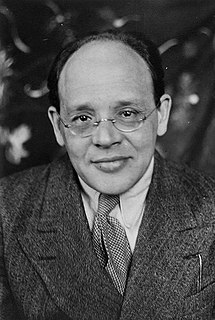 W
WIsaac Emmanuilovich Babel was a Russian writer, journalist, playwright, and literary translator. He is best known as the author of Red Cavalry and Odessa Stories—stories from the life of Jewish gangsters from Odessa led by Benya Krik. He has been acclaimed as "the greatest prose writer of Russian Jewry". Babel was arrested by the NKVD on 15 May 1939 on fabricated charges of terrorism and espionage, and executed on 27 January 1940.
 W
WJohn Blumenthal is an American novelist and screenwriter, known for co-writing the screenplays for the films Short Time and Blue Streak.
 W
WRosalind "Roz" Chast is an American cartoonist and a staff cartoonist for The New Yorker. Since 1978, she has published more than 800 cartoons in The New Yorker. She also publishes cartoons in Scientific American and the Harvard Business Review.
 W
WJoel Derfner is an American writer and composer. He is the author of three gay-themed books: Gay Haiku (2005), Swish: My Quest to Become the Gayest Person Ever and What Ended Up Happening Instead (2008), and Lawfully Wedded Husband: How My Gay Marriage Will Save the American Family (2013). His articles have appeared in publications including the Huffington Post, The Advocate, Time Out New York, and Between the Lines. Derfner and his works have been cited as references on gay culture, and he has been noted as one of "today's best-known gay writers".
 W
WReuben Garrett Lucius Goldberg, known best as Rube Goldberg, was an American cartoonist, sculptor, author, engineer, and inventor.
 W
WRoman Andreyevich Kartsev was a Russian entertainer of stage, theater and cinema.
 W
WEugene Boris Mirman is a Russian-American comedian, actor and writer, known for playing Yvgeny Mirminsky on Delocated and Gene Belcher on the animated comedy Bob's Burgers.
 W
WCilibi Moise or Cilibi Moisi was a Moldavian-born Wallachian and Romanian peddler, humorist, aphorist, and raconteur. He is best known for the aphorisms and anecdotes attributed to him, which, although recorded in Romanian, represent an important segment of the local secular Jewish culture and Jewish humor in the 19th century. Moise relied on others to record his own creations, and these often refer to him using the third person, which made him a stock character.
 W
WBarbu Nemțeanu was a Romanian poet, humorist and translator, active on the modernist wing of the Romanian Symbolist movement. Of Jewish Romanian background, he lived much of his life in the port city of Galați, which provided him with poetic inspiration, but whose provincial life sparked in him intellectual revolt. Orphaned and leaving school at an early age, then diagnosed with tuberculosis, he found meager employment as a clerk, but, throughout, maintained confidence in his poetic genius. Nemțeanu's Symbolism blended with socialism, but also with a lasting admiration for his adoptive Romanian culture, allowing him to publish pseudonymous work in traditionalist-antisemitic reviews such as Neamul Românesc. He was also one of the Symbolists who frequented the Convorbiri Critice circle, becoming personal friends with its leader, Mihail Dragomirescu.
 W
WKlara Borisovna Novikova is a Soviet and Russian pop artist, humorist. Honored Artist of the Russian Federation (1992), People's Artist of Russia (1997). Members of the Public Council of the Russian Jewish Congress.
Leo Calvin Rosten was an American humorist in the fields of scriptwriting, storywriting, journalism, and Yiddish lexicography.
 W
WEfim Zalmanovich Shifrin is a Soviet and Russian actor, humorist, singer. Creator and artistic director of "Shifrin-Theater".
 W
WSemyon Sergeyevich Slepakov is one of the top Russian producer, screenwriter and show-runner.
 W
WTristan Tzara was a Romanian and French avant-garde poet, essayist and performance artist. Also active as a journalist, playwright, literary and art critic, composer and film director, he was known best for being one of the founders and central figures of the anti-establishment Dada movement. Under the influence of Adrian Maniu, the adolescent Tzara became interested in Symbolism and co-founded the magazine Simbolul with Ion Vinea and painter Marcel Janco. During World War I, after briefly collaborating on Vinea's Chemarea, he joined Janco in Switzerland. There, Tzara's shows at the Cabaret Voltaire and Zunfthaus zur Waag, as well as his poetry and art manifestos, became a main feature of early Dadaism. His work represented Dada's nihilistic side, in contrast with the more moderate approach favored by Hugo Ball.
 W
WAlan Zweibel is an American television writer, author, playwright, and screenwriter whom The New York Times says has “earned a place in the pantheon of American pop culture."